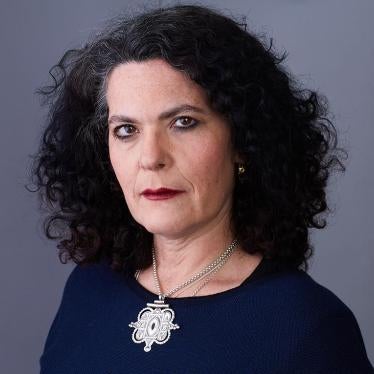A female member of Pakistan’s parliament recently introduced legislation to set the minimum age for marriage at 18 for women as well as men. Under current Pakistani law, it’s 16 for women. On January 14, her proposal was withdrawn by a parliamentary committee after the Council of Islamic Ideology, a body established in 1962 to advise the parliament on Islamic law, denounced the change as "anti-Islamic" and "blasphemous."
This decision keeps Pakistan on the wrong side of human rights protections in the Islamic world. Change is happening on child marriage, including in countries that, like Pakistan, are committed to upholding Islamic values. In 2009, Afghanistan, an Islamic republic, set tough new penalties for child marriage. The prime minister of Bangladesh, another majority Muslim country, has pledged to end all child marriage by 2041.
Twenty-one percent of girls in Pakistan marry before age 18. Globally, 700 million women alive today married before they were 18, and almost half of all child brides live in South Asia.
Child marriage in Pakistan and elsewhere has devastating consequences. Married girls typically stop going to school. They give birth early and frequently, and both they and their babies often suffer serious health consequences, including fistula, uterine prolapse, and low birth weight. Married girls are more likely to become victims of domestic violence than women who marry later. Child marriage helps to hold families in poverty.
Global attention to the harm child marriages cause, not only to married girls and their children but to the development of entire countries, has spurred increased efforts across many countries to end child marriage. Pakistan is no exception. In 2014, Sindh province passed a law setting the age of marriage at 18 for both men and women. In 2015, Punjab province increased the penalties for those found guilty of arranging or conducting child marriages.
But these province-by-province efforts at reform are undermined by a national law, the 1929 Child Marriage Restraint Act, which sets the age of marriage at 18 for males and 16 for females. International law and standards provide that the age of marriage be the same for both men and women and that it be set at a minimum of 18.
Legislators in Sindh, Punjab, and Islamabad have taken important steps to end the scourge of child marriage in Pakistan. The parliament should demonstrate resolve and move ahead with raising the age of marriage for girls to 18. That would not only be in the best interest of Pakistani girls, but all Pakistanis.
|
Dispatches
Dispatches: Protecting Pakistan’s Girls Isn’t ‘Blasphemy’
Your tax deductible gift can help stop human rights violations and save lives around the world.
Most Viewed
-
November 25, 2019
A Dirty Investment

-
June 3, 2025
“They’re Ruining People’s Lives”

-
January 25, 2024
“We’re Dying Here”

-
December 21, 2023
Meta’s Broken Promises

-
February 19, 2018
“All We Want is Equality”





